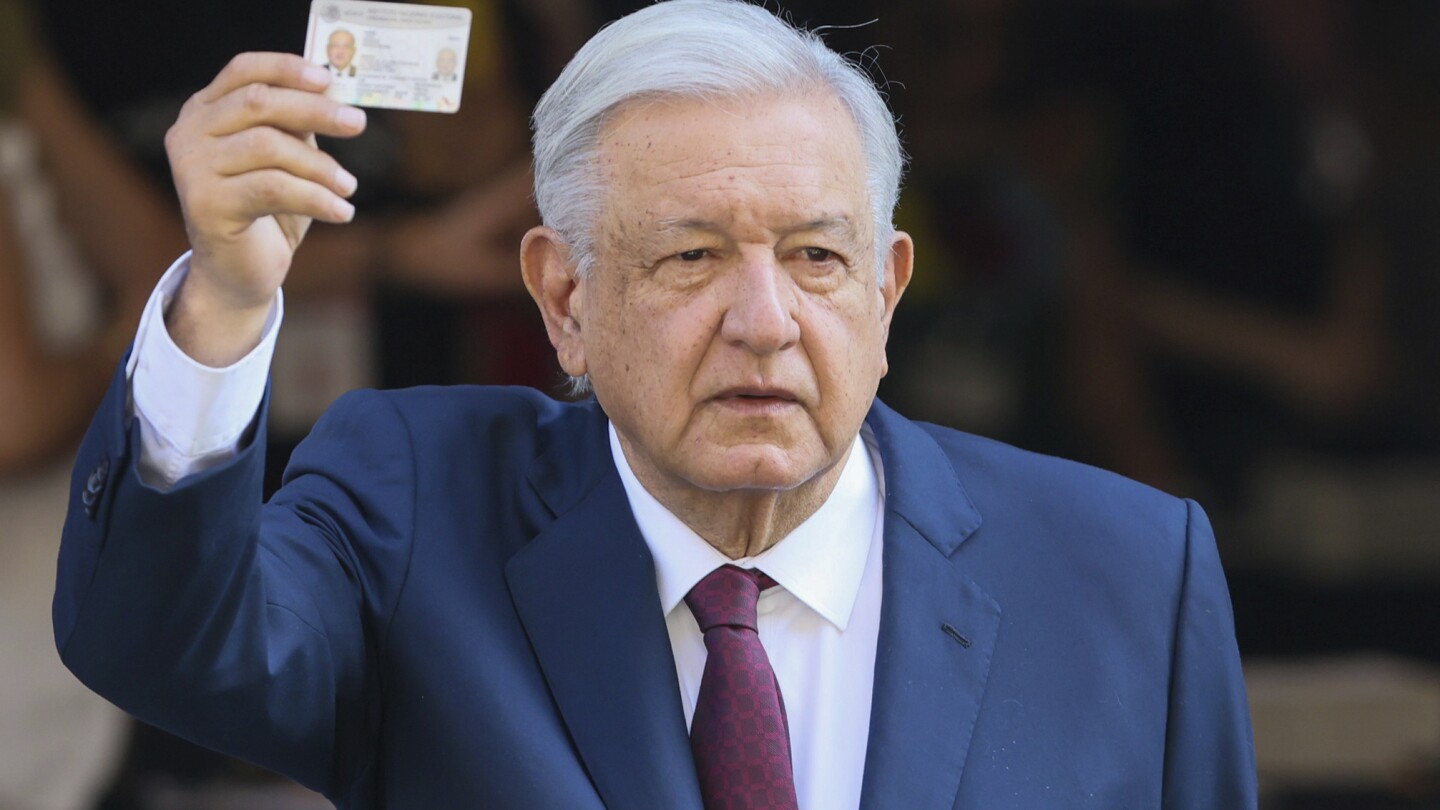MEXICO CITY (AP) — Mexico’s president pledged to press ahead with judicial reforms that have made investors nervous, and suggested remittances would shore up the country’s economy.
President Andrés Manuel López Obrador discounted the 7% drop in the value of the peso against the U.S. dollar in the week following Sunday’s elections and claimed Mexico’s economy was sound. He predicted this year Mexico would see a record $65 billion in remittances, the money sent home by migrants working abroad.
López Obrador acknowledged that markets were nervous about a judicial reform he plans to push through that would make all judges run for election. He said that was because big companies were worried about losing judges who he claimed are protecting them.
López Obrador blamed shadowy elite forces he called “the promoters of nervousness,” and accused them of undue influence in the current legal system, where judges are appointed or approved by legislators.
“There are justices who are employees of the big corporations,” López Obrador said at his morning press briefing. “They have some judges on their keychains.”
Analysts say the president is angry that the country’s judiciary has blocked several of his previous reforms because they were ruled unconstitutional.
López Obrador’s Morena party won a two-thirds majority in Congress, which would allow them to pass changes to the Constitution, like the judicial reform, as well as mandates for a series of yet-unfunded government benefit programs.
He pledged to continue to press for 20 constitutional changes, including one that would undo the country’s current system of individual retirement accounts and the elimination of most independent government oversight and regulatory agencies.
But markets are also concerned about Mexico’s current budget deficit equivalent to about 6% of GDP, and payments to the country’s debt-laden state-owned oil company, Pemex.
Mexico also continues to struggle with persistently high inflation of nearly 5%, despite high domestic interest rates of 11%. Those high returns on government securities had also tended to shore up the value of the Mexican peso over the last year.
López Obrador has previously bragged about the peso’s strength, and a reduction in the number of Mexican living in poverty (though extreme poverty has increased.) But experts say the peso’s strength and poverty gains are due in part to the fact that remittances have almost doubled since 2019, as migrants increasingly sent money back to their families.
Remittances rose from about $36 billion in 2019 to $63.3 billion in 2023. According to the World Bank, remittances accounted for 4.2% of Mexico’s entire GDP, a number that is almost certainly higher now.
In the first four months of 2024, remittances rose by 8.3% compared to the same period of 2023.
Markets are also nervous about the ongoing costs of supporting Pemex and the cost of the subsidies that will have to continue to flow into the president’s state-run transport projects.
López Obrador created a government-run airline providing subsidized, lower-cost tickets. That airline, Mexicana, has about $459 million in projected operational costs, and has ordered 20 new planes from Brazil’s Embraer at a cost of $750 million, officials said Friday.
But the company only carries about 1,000 passengers per day. Other projects, like the president’s Maya Train line that runs in a loop around the Yucatan peninsula, have cost billions and may never break even.
Markets are also questioning how much influence López Obrador will continue to exert after Claudia Sheinbaum, the Morena candidate who won Sunday’s elections, takes office Oct. 1.
López Obrador has previously said he will retire from politics entirely upon leaving office. But on Friday he said he would continue talking on the phone with Sheinbaum if she calls, and pledged “to continue using my right to dissent, all my life.”

